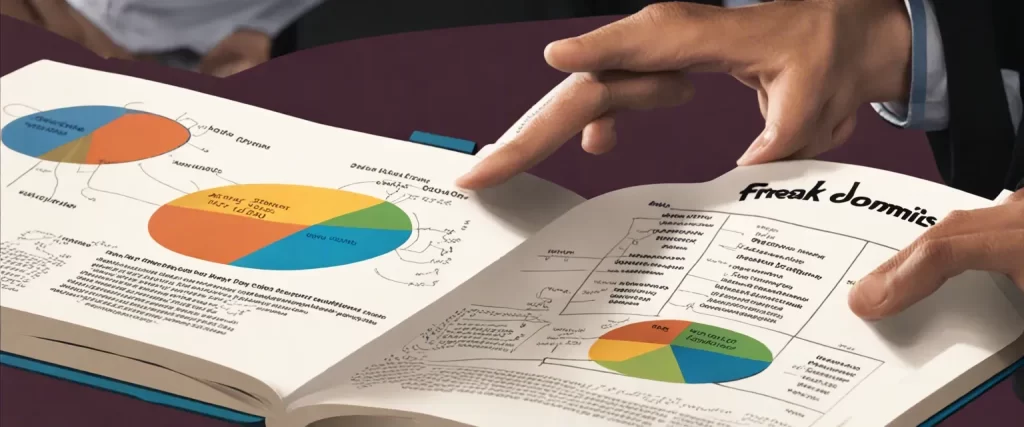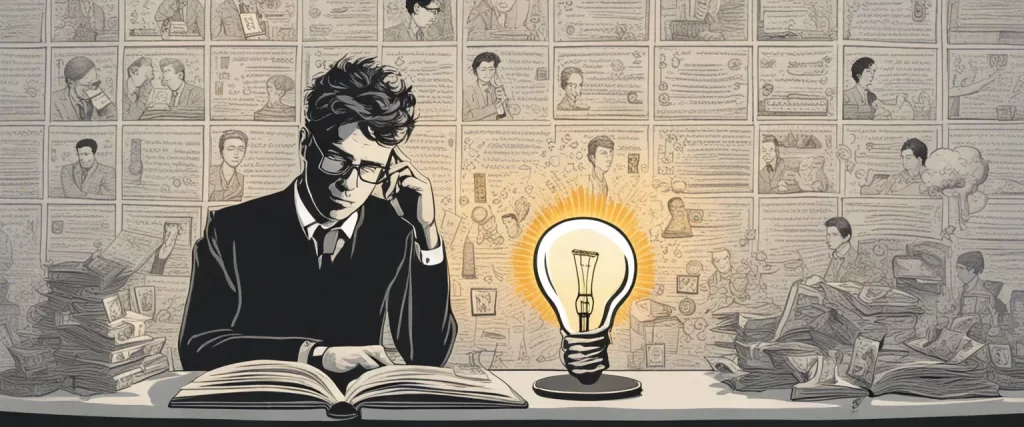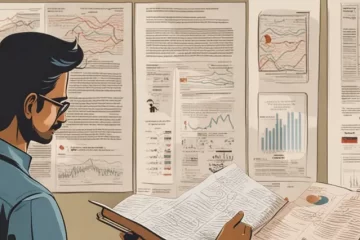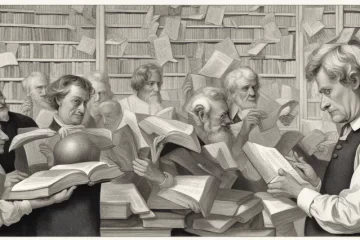Exploring Economics with a Twist: Discover Freakonomics

In a world governed by seemingly complex economic principles, one book dared to challenge conventional wisdom and redefine how we perceive the workings of our society. “Freakonomics,” written by Steven D. Levitt, an economist, and Stephen J. Dubner, a journalist, takes readers on a captivating journey into the realm of economics like never before. By shining a light on unexplored connections and unveiling the hidden forces behind human behavior, this groundbreaking work unveils a fresh perspective on the fundamental forces that shape our lives and our world. Join us as we embark on an insightful exploration into the captivating world of “Freakonomics” and discover the unexpected truths that lie beneath the surface of our economic landscape.
What is Economics
Economics is a social science that studies how individuals, businesses, governments, and societies make choices to allocate resources and satisfy their unlimited wants and needs. It examines how people produce, consume, and distribute goods and services in order to understand and explain patterns of wealth, production, employment, inflation, economic growth, and other economic phenomena.
Economics can be broadly divided into two branches: microeconomics and macroeconomics. Microeconomics focuses on individual economic agents such as consumers, producers, and markets, and analyzes their decision-making behaviors and interactions. Macroeconomics, on the other hand, studies the overall economy and deals with aggregate variables such as national income, employment, and inflation.
Economists use various tools and methods, including mathematical models, statistical analysis, and experimental research, to study and analyze economic issues. They often make assumptions and use simplified models to make predictions and understand economic behavior.
The field of economics is broad and encompasses various sub-fields such as labor economics, international economics, monetary economics, development economics, environmental economics, and behavioral economics. It is used to inform government policies, business decisions, and personal financial choices, and plays a crucial role in understanding and solving economic problems at both the micro and macro levels.
Why is Economics Important to Us
Economics is important to us for several reasons:
1. Allocation of resources: Economics helps in determining how scarce resources should be allocated among competing uses. It helps in finding the most efficient ways of producing and distributing goods and services, ensuring that resources are not wasted. This leads to higher productivity and a higher standard of living for individuals and societies.
2. Understanding markets: Economics studies the behavior of individuals, firms, and governments in the market. It helps us understand how prices are determined, how supply and demand interact, and how markets function. This knowledge is crucial for consumers, producers, and policymakers to make informed choices.
3. Decision-making: Economics provides tools and frameworks that help us analyze and evaluate different alternatives when making decisions. It helps in weighing the costs and benefits of different choices, considering trade-offs, and predicting the impact of policies or actions on individuals and societies.
4. Policy development: Economics plays a crucial role in shaping public policy. Policymakers use economic analysis to design and implement policies that promote economic growth, reduce poverty, mitigate the effects of market failures, and improve overall welfare. Understanding economics is essential for effective policy formulation and evaluation.
5. Global perspective: Economics helps us understand the interconnectedness of the global economy. It provides insights into international trade, finance, and economic development. As the world becomes increasingly interconnected, understanding economics is crucial for navigating global challenges and opportunities.
Overall, economics is important to us because it provides the tools and knowledge necessary to make informed choices, understand market dynamics, and shape policies that promote individual and societal well-being.
Unlocking Economics from Freakonomics

Freakonomics Introduction
Freakonomics” by Steven D. Levitt and Stephen J. Dubner is a non-fiction book that explores the hidden side of everyday life and how economic principles can explain various societal phenomenon.
The authors use economic analysis to delve into seemingly unrelated topics and draw surprising conclusions. They tackle topics such as cheating in education, the financial motivations behind drug dealing, the effects of parenting on children’s success, and the impact of abortion on crime rates.
Levitt, an economist, and Dubner, a journalist, take a provocative and thought-provoking approach to understanding social issues. They demonstrate how conventional wisdom is often wrong and show readers how to think differently about cause and effect.
Throughout the book, the authors use data analysis and statistical evidence to provide evidence for their arguments. They present compelling case studies and real-life examples to illustrate their theories, making complex economic concepts accessible and engaging for a wide audience.
Ultimately, “Freakonomics” challenges readers to question their assumptions and think critically about the underlying factors that shape our behavior and society as a whole. The book offers a fresh perspective on the world through an economic lens, encouraging readers to embrace unconventional thinking and challenge conventional wisdom.
Learning Economics Methods
In the book Freakonomics” by Steven D. Levitt and Stephen J. Dubner, the authors explore various economic methods to analyze and understand human behavior and societal phenomena. Some of the methods mentioned in the book include:
1. Economic Incentives: Levitt and Dubner emphasize the importance of understanding how incentives influence individuals’ decision-making. They apply economic analysis to examine how people respond to different incentives, such as monetary rewards or penalties.
2. Microeconomics: The authors employ microeconomic principles to study individual behavior and analyze how small-scale decisions can have significant effects on social outcomes. They use economic reasoning to examine topics like cheating, crime, and parenting.
3. Statistical Analysis: The authors extensively use statistical methods to analyze data and draw conclusions. They emphasize the importance of collecting and interpreting data to gain insights into various economic and social issues.
4. Regression Analysis: Levitt, being an econometrician, utilizes regression analysis to quantitatively study relationships between variables. He employs this method to isolate specific factors and identify the causal effects of different variables on certain outcomes.
5. Field Experiments: The authors conduct various field experiments to test economic theories and hypotheses. They explore unconventional methods to collect data and gain insights into real-life situations, such as studying the impact of incentives on student performance or analyzing cheating patterns.
6. Economic Theory: Levitt and Dubner apply economic theories to explain seemingly unrelated phenomena. They draw upon established economic concepts such as supply and demand, opportunity cost, and rational behavior to study a wide range of topics.
7. Cost-Benefit Analysis: The authors weigh the costs and benefits of particular choices or actions to evaluate their economic efficiency. They use this method to analyze public policies, social programs, and personal decision-making.
Overall, “Freakonomics” introduces readers to a range of economic methods and analytical tools that can be employed to uncover hidden patterns and understand unconventional aspects of human behavior and societal phenomena.
Freakonomics Quotes
Freakonomics quotes as follows:
1. “Morality, it could be argued, represents the way that people would like the world to work – whereas economics represents how it actually does work.”
2. “Incentives are the cornerstone of modern life.”
3. “What intrigued me about these riddles was not their difficulty; I was used to tough problems. The true conundrum was why so many people were so determined to solve them.”
4. “Conventional wisdom is often wrong.”
5. “The typical function of conventional wisdom is to reinforce clichés of authority, to discourage questioning, and to delegitimize unconventional ideas.”
6. “Information is a beacon, a cudgel, an olive branch, a deterrent—all depending on who wields it and how. Information is so powerful that, in many cases, its absence can be even more powerful.”
7. “Things do not always happen for a reason.”
8. “Knowing what to measure and how to measure it makes a complicated world much less so.”
9. “The conventional wisdom is often wrong because it fails to account for the unintended consequences of an action.”
10. “The social sciences share a love of paradox, irony, and inference, as well as a sense that no one factor can ever explain everything.”

More Books About Freakonomics by Steven D. Levitt, Stephen J. Dubner
1. Thinking, Fast and Slow” by Daniel Kahneman
This book dives deep into the realm of human decision-making and the psychology behind it. Like “Freakonomics,” Kahneman explores various situations and scenarios to explain how our minds work when making choices. It offers readers a fascinating look into the biases and heuristics that shape our judgment, providing a thought-provoking and entertaining read.
2. Mastering the Market Cycle” by Howard Marks
For those intrigued by the economic aspects of “Freakonomics,” Mastering the Market Cycle” by Howard Marks offers an insightful exploration of the cyclical nature of financial markets. Marks, a renowned investor, provides valuable insights into understanding and navigating market fluctuations, offering a unique perspective based on decades of experience. This book serves as an excellent complement to Levitt and Dubner’s economic analysis.
3. “Open Veins of Latin America” by Eduardo Galeano
If you were captivated by the historical and sociopolitical aspects of “Freakonomics,” “Open Veins of Latin America” is a must-read. In this seminal work, Galeano offers a comprehensive account of the economic exploitation and imperialism endured by Latin America throughout history. It provides a powerful critique of the global economic system, shedding light on the consequences faced by developing nations and underscoring the importance of understanding the larger context of economic analysis.
4. “SuperFreakonomics” by Steven D. Levitt, Stephen J. Dubner
While “Freakonomics” is excluded from this list, it would be remiss not to mention its sequel, “SuperFreakonomics.” This follow-up book delves further into the unconventional economic theories and thought-provoking questions explored in the first book. Levitt and Dubner continue to challenge conventional wisdom, presenting readers with fascinating stories and counterintuitive insights that spark critical thinking.
5. Nudge” by Richard H. Thaler and Cass R. Sunstein
For those interested in the application of behavioral economics to policy-making, “Nudge” offers an engaging exploration of how small changes in decision-making contexts can lead to significant behavioral shifts. Thaler and Sunstein discuss the concept of libertarian paternalism and present a framework for designing policies that guide individuals towards making choices that are in their best interest, while still preserving their freedom to choose. This book complements the ideas explored in “Freakonomics” by shedding light on how behavioral economics can shape social outcomes.



0 Comments